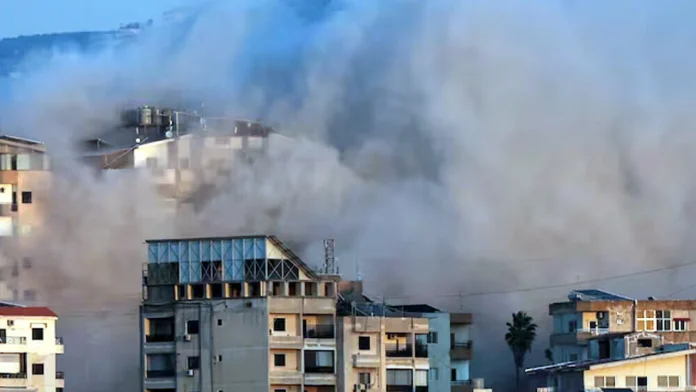An Israeli airstrike on Wednesday destroyed the municipal headquarters in Nabatieh, a key town in southern Lebanon, killing Mayor Ahmed Kahil and at least five others. The group had been meeting to coordinate aid for residents impacted by the ongoing conflict between Israel and Hezbollah. The strike has raised concerns that Israel’s expanding military campaign, aimed at dismantling Hezbollah’s infrastructure, could increasingly target public officials and government buildings, which had largely been spared up to this point.
Lebanon’s Caretaker Prime Minister, Najib Mikati, condemned the attack, calling it an intentional strike on a municipal meeting intended to discuss the city’s relief efforts. The strike on Nabatieh, a provincial capital, marks one of the most significant attacks on a Lebanese state building since Israel intensified its operations last month. The attack comes despite growing international concerns, including from the United States, over the rising civilian death toll and the potential for a broader regional conflict.
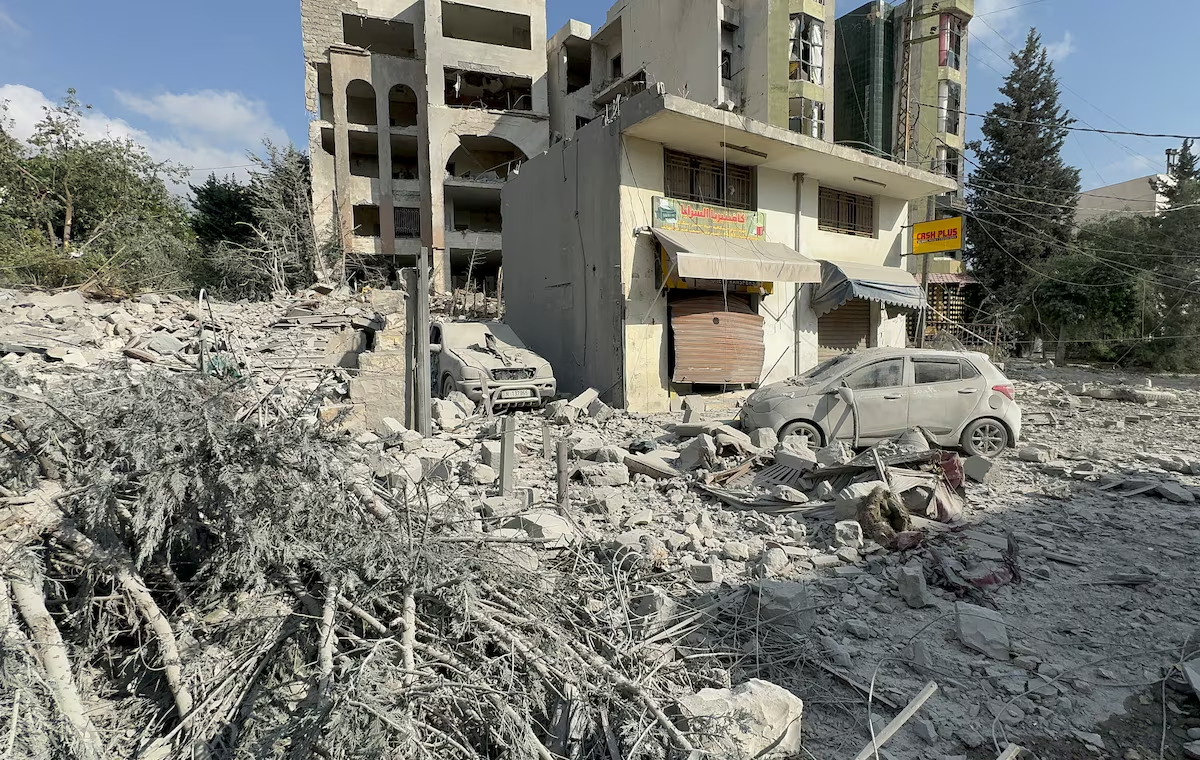
Israel’s Expanding Campaign in Lebanon
The Israeli military has carried out numerous airstrikes in southern Lebanon in recent weeks as part of a broader strategy to crush Hezbollah, the Iran-backed militant group. Israel has assassinated several senior Hezbollah leaders and has made advances into southern border towns in an effort to dismantle the group’s infrastructure. These incursions, according to Israeli officials, aim to secure the region and allow displaced Israelis to return to their homes in the north of Israel.
In recent strikes, Israeli forces claimed to have “dismantled” an extensive network of tunnels used by Hezbollah’s elite Radwan Forces. Video footage released by the Israeli military showed a series of explosions in a small border town, which Lebanese officials identified as Mhaibib, home to a religious shrine.
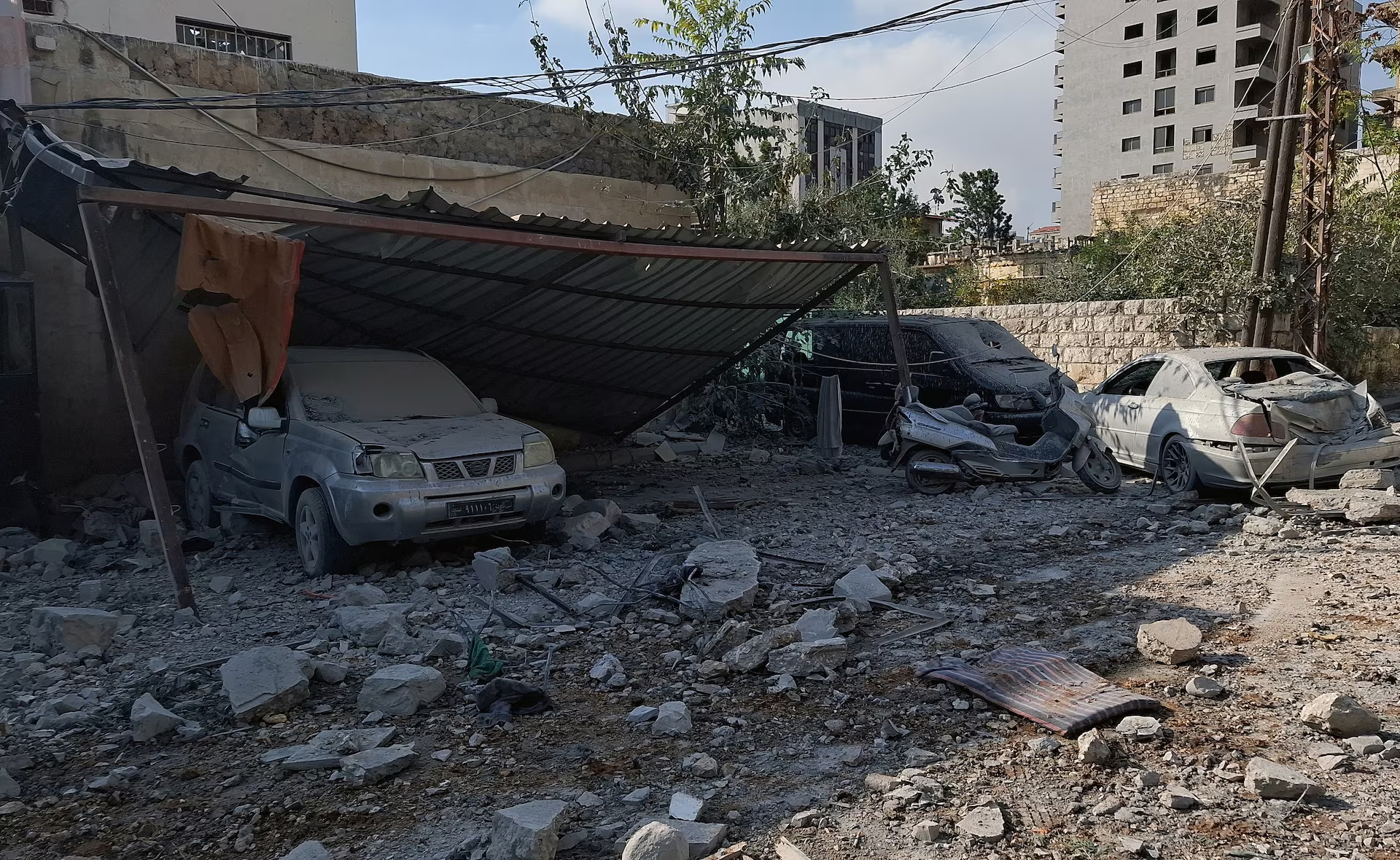
Civilian Casualties and International Response
The airstrike on Nabatieh is part of an expanding campaign that has resulted in significant civilian casualties. Since Israel began its offensive last year, Lebanese officials report that at least 2,350 people have been killed, including hundreds of women and children. The conflict has also displaced over 1.2 million people, with a quarter of Lebanon now under evacuation orders, according to the United Nations.
The United Nations Special Coordinator for Lebanon, Jeanine Hennis-Plasschaert, described the situation as unprecedented, highlighting the increased suffering of civilians due to the ongoing Israeli strikes. Western countries, including the United States and France, have voiced concerns over the expanding air campaign and its devastating effects on the civilian population. On Tuesday, a U.S. State Department spokesperson, Matthew Miller, acknowledged that Washington had raised concerns with Israeli Prime Minister Benjamin Netanyahu regarding the recent attacks on Beirut.
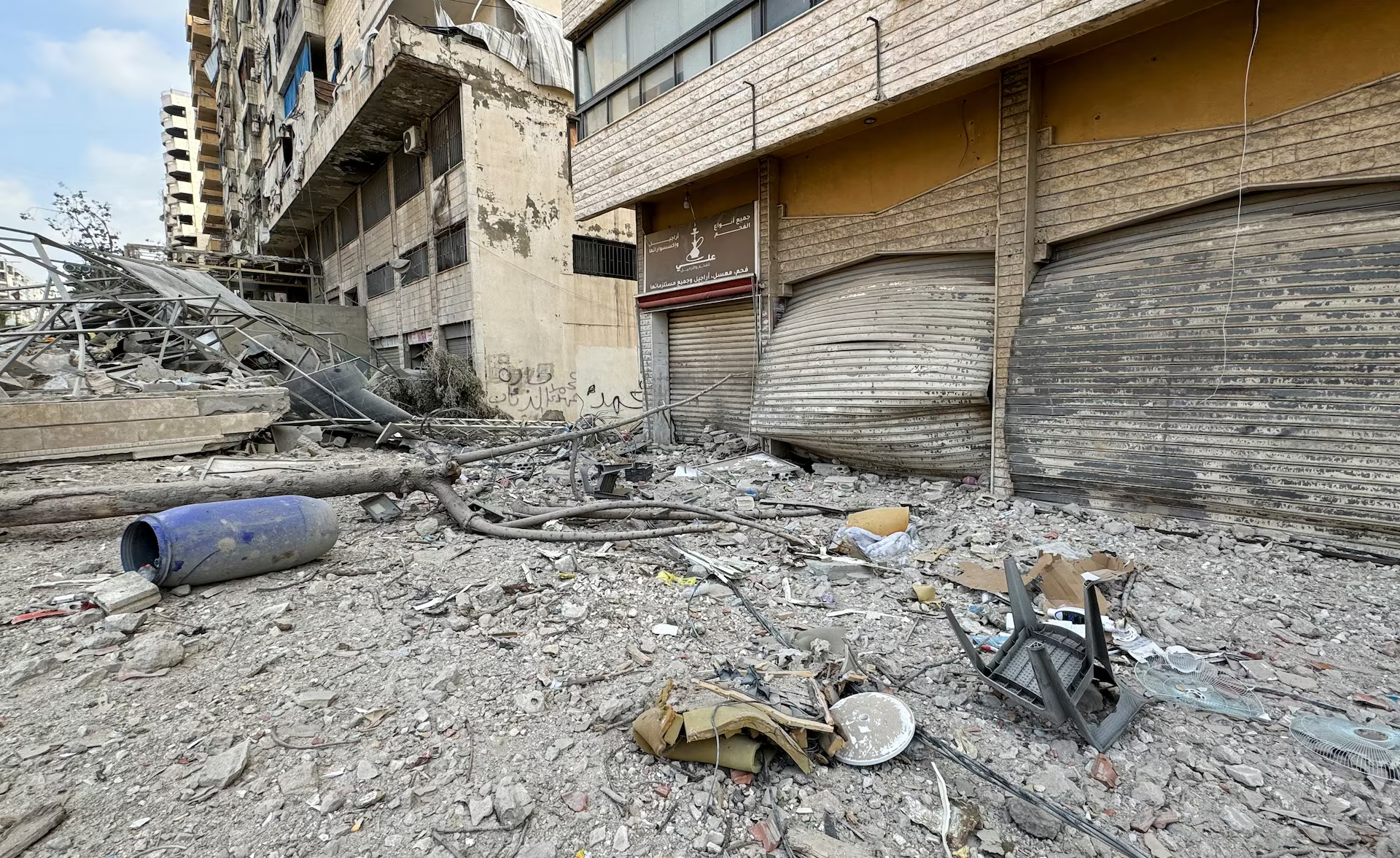
Hezbollah Strongholds Targeted
In parallel with the strikes on southern Lebanon, Israeli forces have also targeted Hezbollah strongholds in Beirut’s southern suburbs. On Wednesday, an Israeli airstrike hit areas in the Dahiyeh district of the capital, where Hezbollah maintains a significant presence. While the Israeli military stated that they had struck an underground Hezbollah weapons stockpile, they emphasized that efforts were made to warn civilians ahead of the strike.
Despite these claims, there have been numerous reports of civilian casualties from Israeli operations, and Hezbollah has yet to comment on the latest strikes. The ongoing bombardment in Beirut follows a previous strike on October 10 that killed 22 people and leveled buildings in densely populated neighborhoods near the city center.
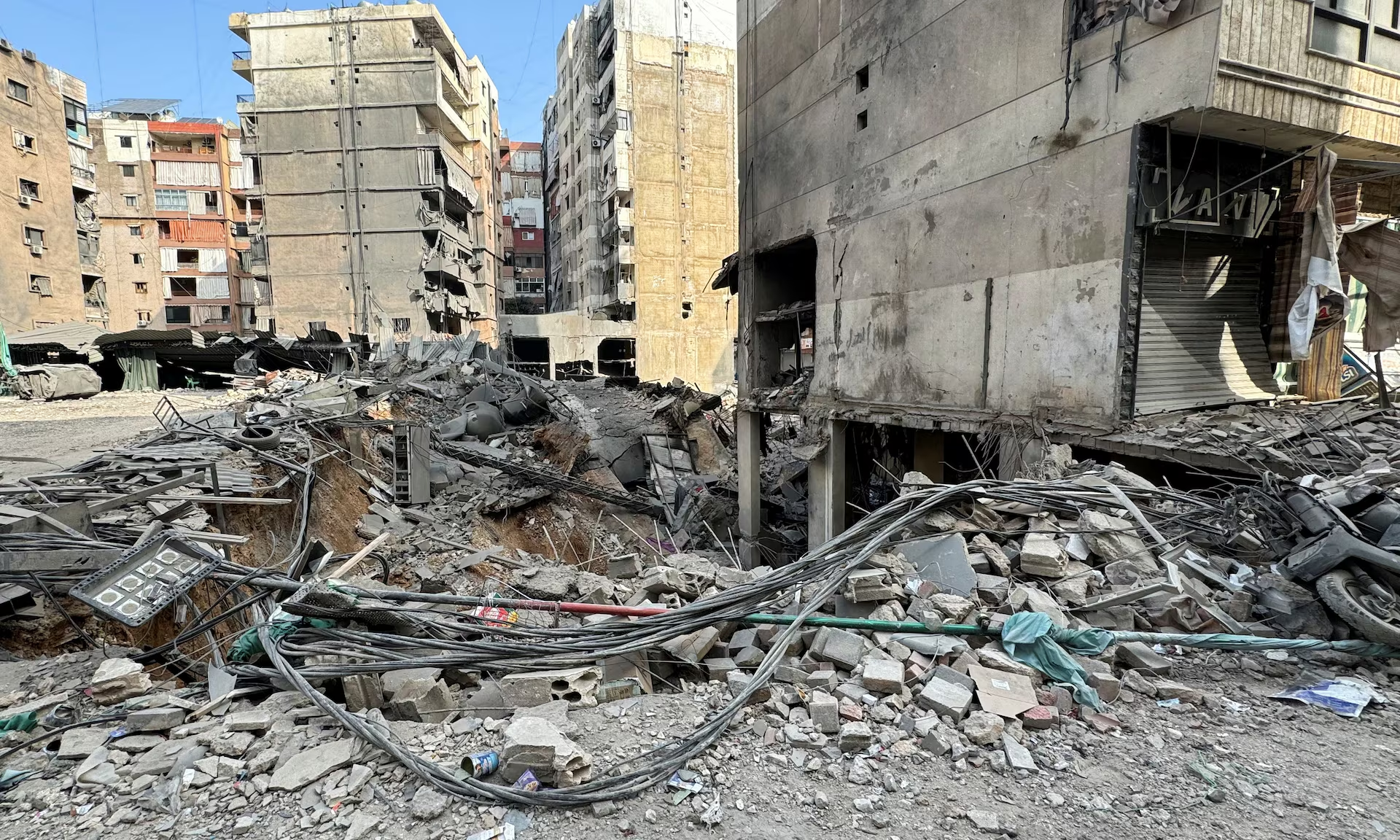
Diplomatic Struggles and Diminished Hope for Ceasefire
Lebanon’s Caretaker Prime Minister Mikati has expressed doubts about the prospects of a ceasefire, citing Israel’s aggressive actions, which have recently included strikes on UN peacekeeping forces stationed in southern Lebanon. In a statement, Mikati questioned what could possibly deter Israel from continuing its military operations, which he described as “crimes” that threaten to push the region into all-out war.
Since Israel’s ground operations began, UN peacekeeping forces in Lebanon (UNIFIL) have come under fire. Two Israeli tanks reportedly breached a UNIFIL base, and five peacekeepers have been injured, leading to heightened concerns among European governments. On Wednesday, Spanish Defence Minister Margarita Robles reaffirmed the importance of the UN mission during a meeting with defense ministers from other EU countries. Israel, meanwhile, has called on the United Nations to relocate peacekeeping forces from the combat zones.
Israel Prepares for Retaliation Against Iran
The conflict in Lebanon is part of a broader regional struggle involving Israel, Hezbollah, and their respective allies. Israel is not only fighting Hezbollah in southern Lebanon but is also engaged in a separate conflict with Hamas in Gaza. In addition, tensions with Iran have flared in recent weeks. Tehran, a key supporter of Hezbollah, launched a missile attack on Israel on October 1, following a similar incident earlier this year in April.
While the probability of an Israeli strike on Iran’s nuclear facilities remains low, tensions continue to rise. On Wednesday, Iran’s state atomic energy agency spokesperson, Behrouz Kamalvandi, suggested that any damage to Iran’s nuclear infrastructure could be swiftly repaired, minimizing the long-term impact of such an attack.
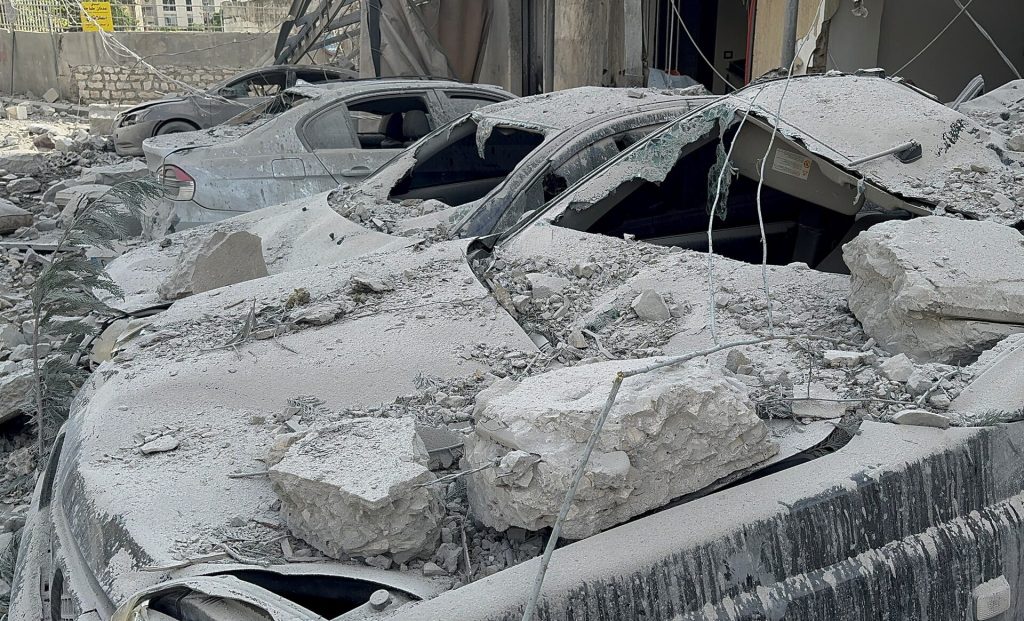
Increasing Global Concern
The ongoing Israeli airstrikes in Lebanon, particularly those targeting urban centers and civilian infrastructure, have drawn international condemnation. France, in a symbolic move, has banned Israeli companies from participating in an upcoming military naval trade show, highlighting the growing strain between Israel and some of its Western allies.
With no signs of a ceasefire in sight, the conflict between Israel and Hezbollah continues to destabilize the region, with potentially dire consequences for Lebanon and beyond. As civilian casualties mount and diplomatic efforts stall, both sides remain entrenched in a violent struggle that threatens to escalate further in the coming weeks.

